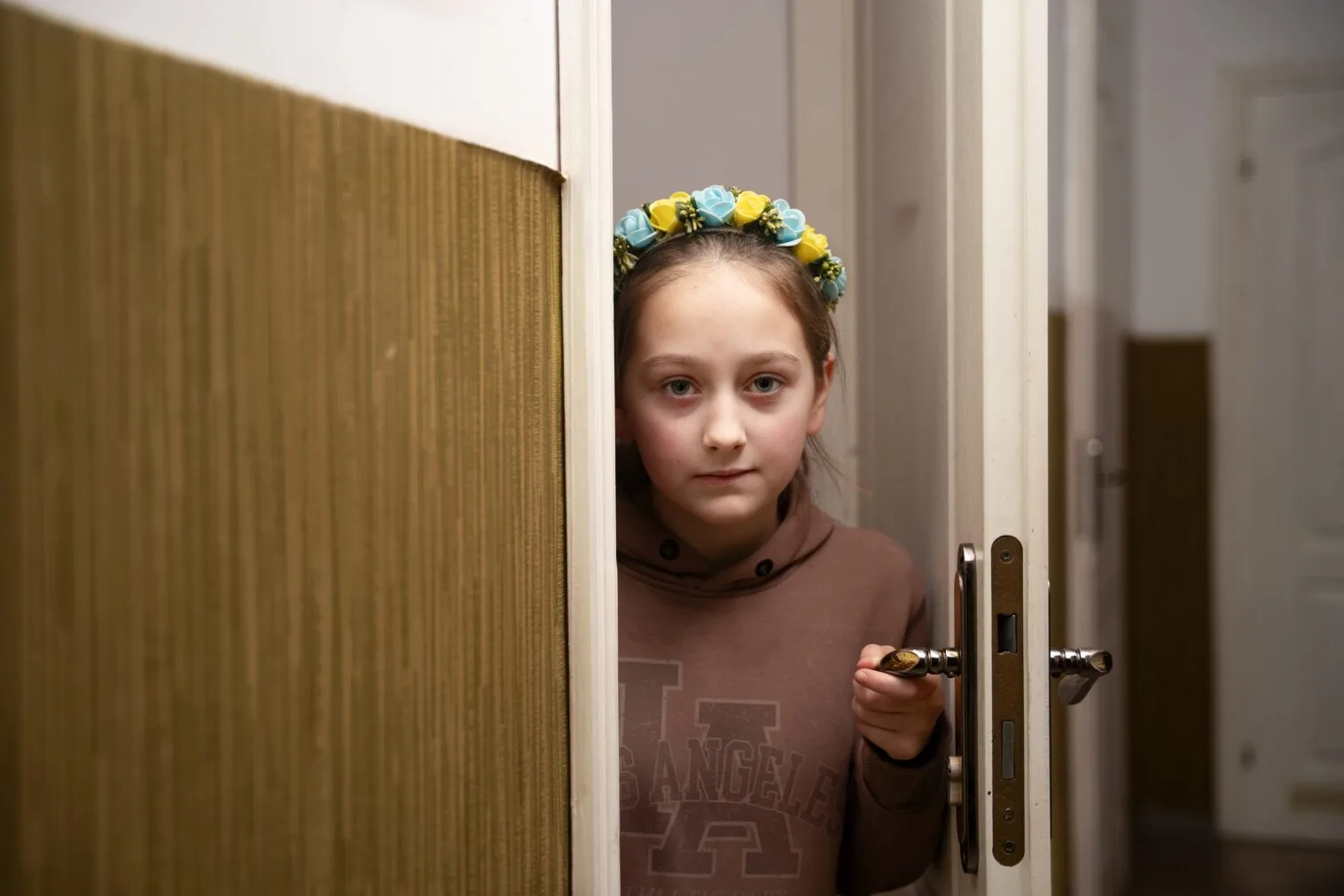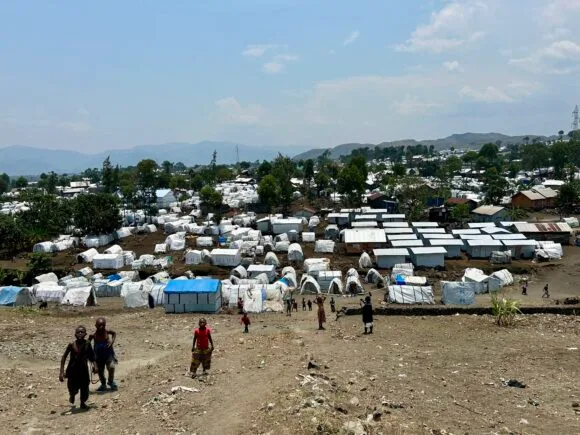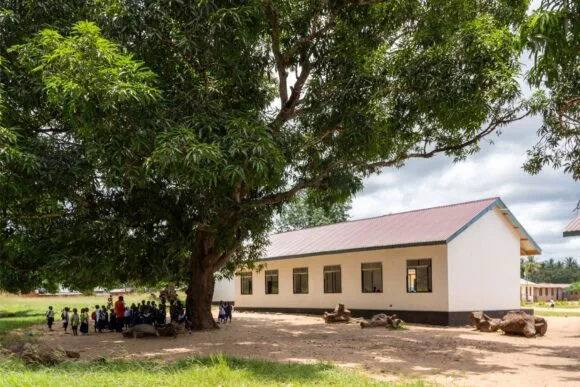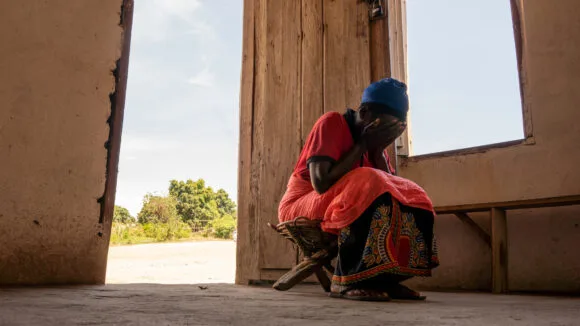Life Goes On in the Midst of War
Three years of war have meant complete uncertainty for many in Ukraine. While world leaders negotiate the fate of the country, Ukrainians continue their daily lives in the midst of war. We visited Ukraine in January.
When the war broke out three years ago, Olena Prevarska, 30, was forced to leave her home in Irpin, a city that quickly became a symbol of Ukrainian resilience due to the perseverance of its civilians. Fleeing to Western Ukraine, Olena lost her job, friends, church, and entire former life. Yet, she prayed that she could stay in her homeland and help.
As the answer to her prayers did not come immediately and she needed to find a way to survive, Olena decided to travel to Germany in search of work. But on the way, she received a phone call—she was being offered a job at Edobro (engl. “Kindness”), a newly established Christian relief organisation. Without hesitation, Olena returned to Ukraine and became part of a team of young believers coordinating aid across the country from their office in Lviv.


In her work, Olena prepares funding applications and reports on the organisation’s activities to its supporters, including Fida. She expresses her gratitude to the Finnish people for their support and reminds them that the need for aid continues.
– Fewer and fewer international organisations are donating to Ukraine. The economic situation is worsening, and many vulnerable people, such as refugees and pensioners, are struggling to survive. We dream of peace and a developing Ukraine.
The Edobro relief organisation was founded in the spring of 2022 by Ukraine’s largest Pentecostal movement, which includes over 1,700 congregations. Many of these churches had been carrying out relief work independently since the first days of the war, but a nationwide organisation was needed to coordinate their efforts effectively. Edobro now operates throughout the country, focusing particularly on areas most devastated by the war.
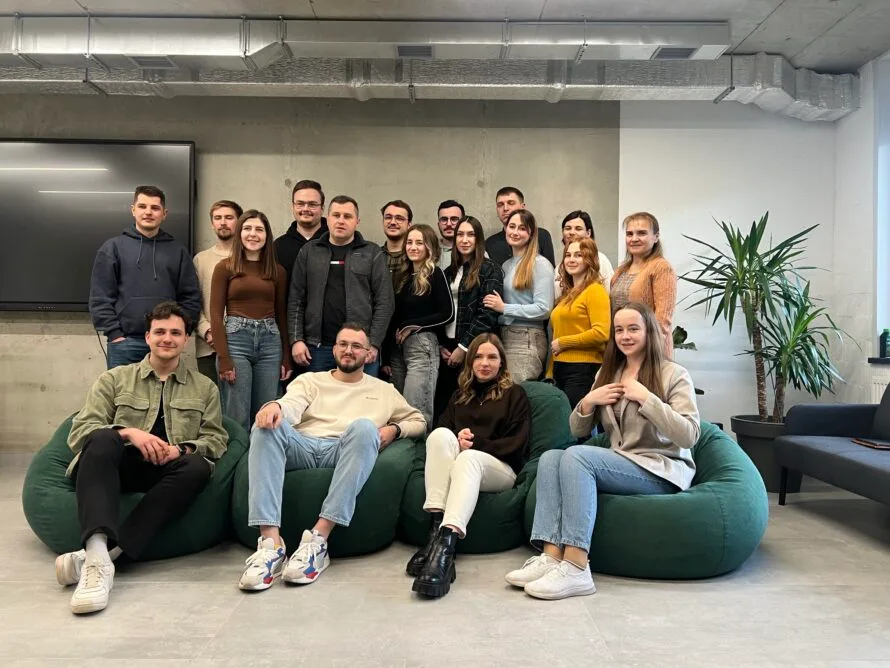

Aid for Villages Near the Frontline
The Fida Country Programme Coordinator, Sakari Koivula, has been living in Kyiv since 2023. Today, he is travelling by train towards Lviv. Koivula frequently takes the train to visit Fida’s partners in both Eastern and Western Ukraine. The overnight train to Zaporizhzhia, a key project area for Fida, has also become a familiar route.
– I am not afraid, but here, one has to accept life with constant air raid alerts. Missile and drone attacks are a possibility anywhere, says Koivula, whose home in Kyiv was near the site of a recent strike.


He recalls that when Fida launched its humanitarian programme in Ukraine, the situation was unique. There was no need to start aid efforts from scratch, as Edobro was already carrying out significant humanitarian work across the country. Fida’s role has been to strengthen and expand this existing work.
Over the past two years of collaboration, Fida has provided training for Edobro’s staff, equipping them to offer psychosocial support to those suffering from war trauma. Additionally Fida has funded key projects, such as winter relief operations in Eastern Ukraine.


Last summer, Sofia had the opportunity to attend a summer camp supported by Fida, which became the highlight of her summer. Photo: Arto Karvonen
Initially, Fida’s aid focused on internally displaced people, who had fled to Transcarpathia for safety. However, the greatest need is now near the frontline in Eastern Ukraine. The partnership with Edobro is now concentrated in Zaporizhzhia and its surrounding villages.
Many have fled the war, but the most vulnerable, such as the elderly living alone, remain. They simply have no way to leave. Their homes are partially or completely destroyed, Koivula explains.
He deeply admires the resilience of local communities, which he has witnessed first-hand in places like Komyshuvakha, just 20 kilometres from the frontlines.
– It is almost paradoxical how determinedly people continue their daily lives, even in villages right next to the front. Houses bear the scars of shelling, yet people repair them one room at a time and adapt to their new reality.
Cash Assistance and Psychosocial Support
To help these people survive, Fida focuses on direct cash assistance. Aid recipients are those with no other income or support available.
– They receive direct financial aid, which they can use as they see fit—to buy food, pay electricity bills, or repair a window shattered by shelling. At the same time, this support strengthens the local economy, Koivula explains.
Zaporizhzhia remains under constant air attacks, and its proximity to enemy forces makes it nearly impossible to reach a shelter in time when an alarm sounds. In response, the city established two underground schools , and four more are under construction. However, most students still attend school remotely.
– We have established psychosocial support groups for children in Zaporizhzhia. These groups provide them with a safe space to process their emotions and interact socially—something often missing in remote learning. This kind of support is crucial for their well-being, Koivula states.
A Silent Cemetery
At the heroes’ cemetery in Lviv, Oleh Dets, a worker at Edobro, stands in solemn silence. Hundreds of Ukrainian flags flutter in the cold January wind, and a profound quiet fills the air. From the portraits on the graves, young soldiers who lost their lives in the war gaze directly at passersby.
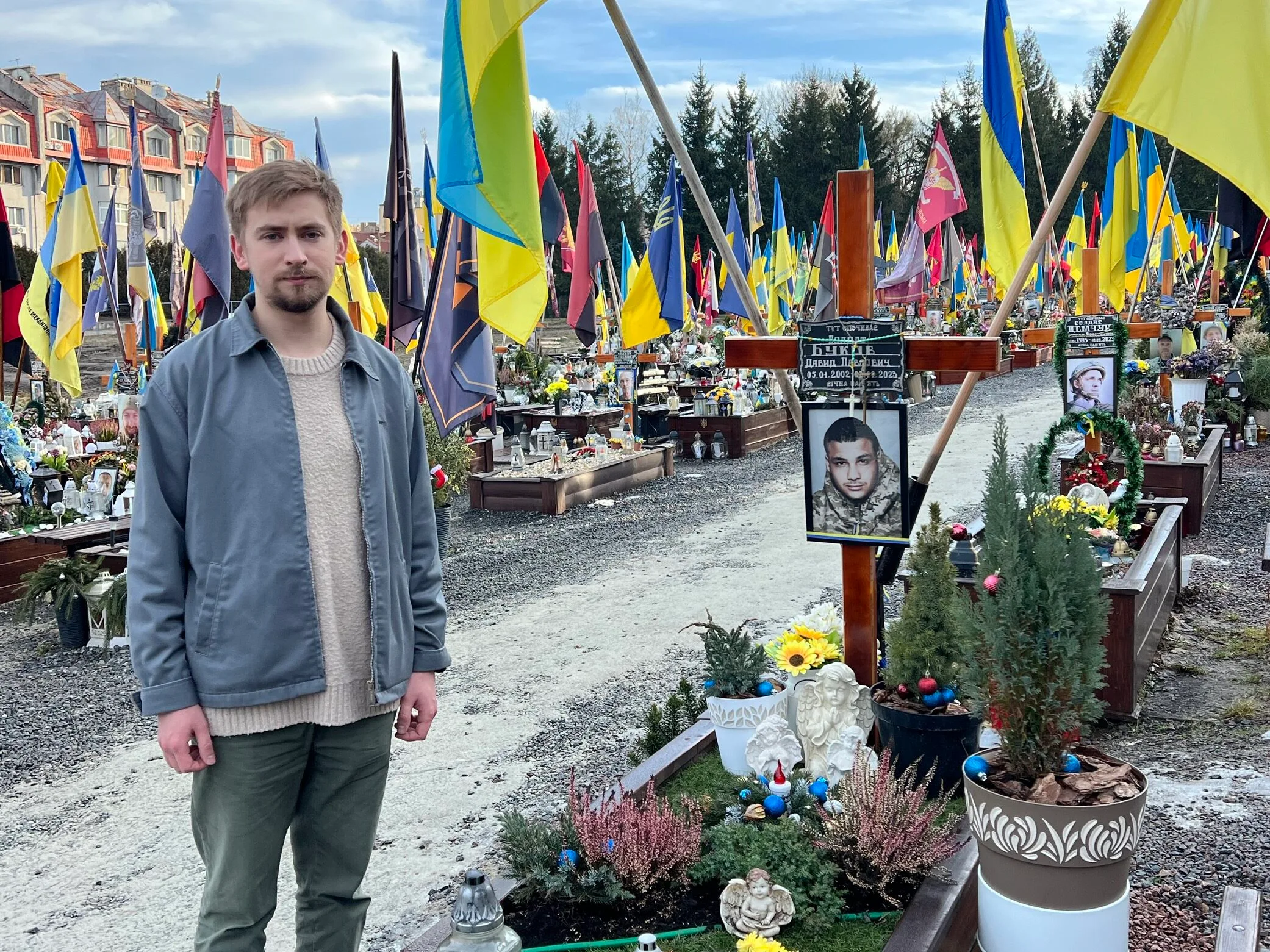

Photo by: Ninarose Keltto
– Here lies Oleh, my namesake and university friend. As a soldier, his duty was to secure the supply route along the now-infamous Irpin corridor. He died in an explosion at the age of 21. He was the kindest person in the world. We have a saying that the best are taken first in war, says Oleh, who has already lost several loved ones in the war.
“God Told Us to Prepare for War”
Oleksiy Marchenko, a youth leader and project manager at Edobro, grows emotional as he recalls the first moments of the war.
When the war began, his wife had just given birth to their third child, and as a new father, he was exempt from military duty. This allowed him to continue his work in both the church and the relief organisation.
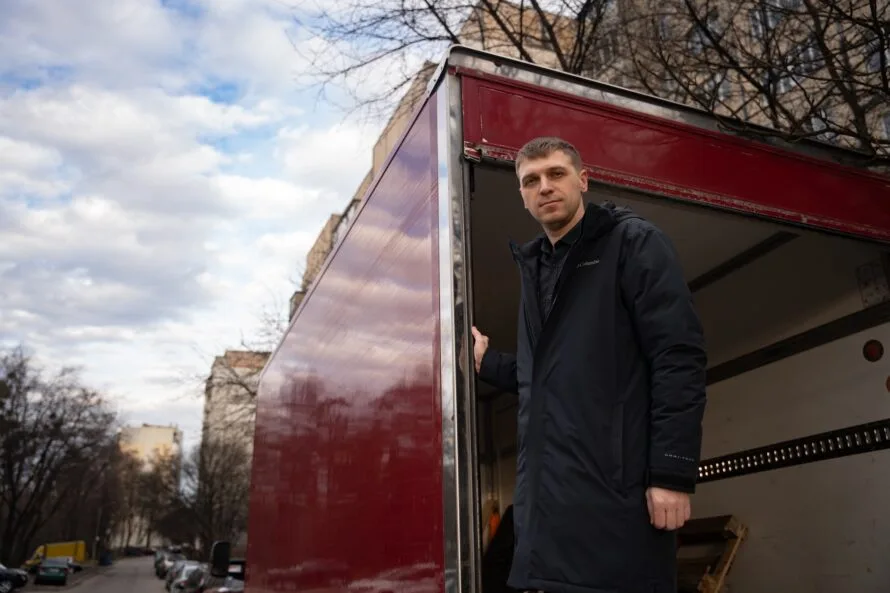

– Three months before the war, our church received a prophecy that war was coming and that we needed to prepare a refuge for people. Many thought I was crazy when I took action. A war? There wasn’t supposed to be any such thing.
– The renovation of our community centre was completed just as the war began. People came for shelter day and night. We provided food and transported them to safety. God has taken care of us.
The willingness to help has been unprecedented in Ukraine. Many young Ukrainians who could have fled abroad chose to stay and serve. They work tirelessly, knowing that they are needed now more than ever.
Fida continues its mission in Ukraine, strengthening these frontline workers.
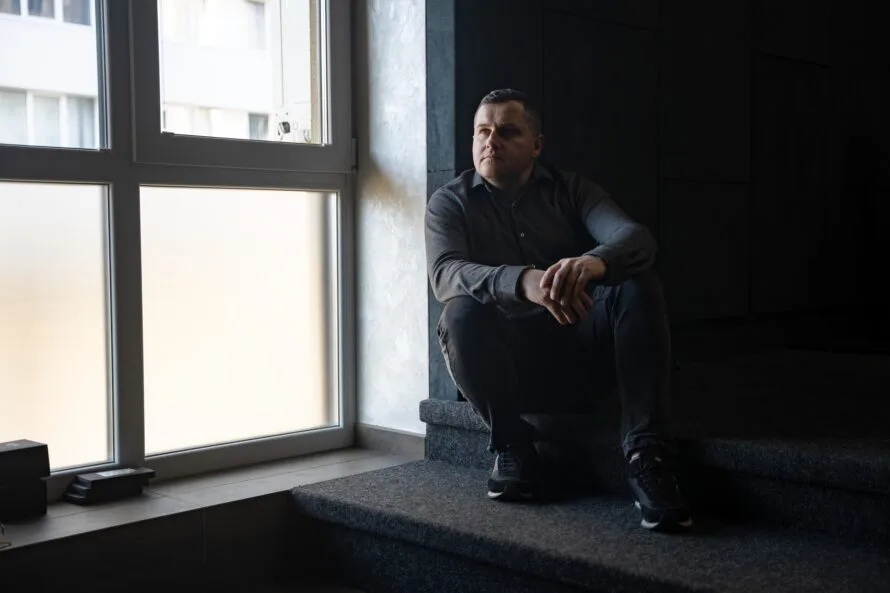

Written by: Ninarose Keltto, Kirsi Koski-Kujala
